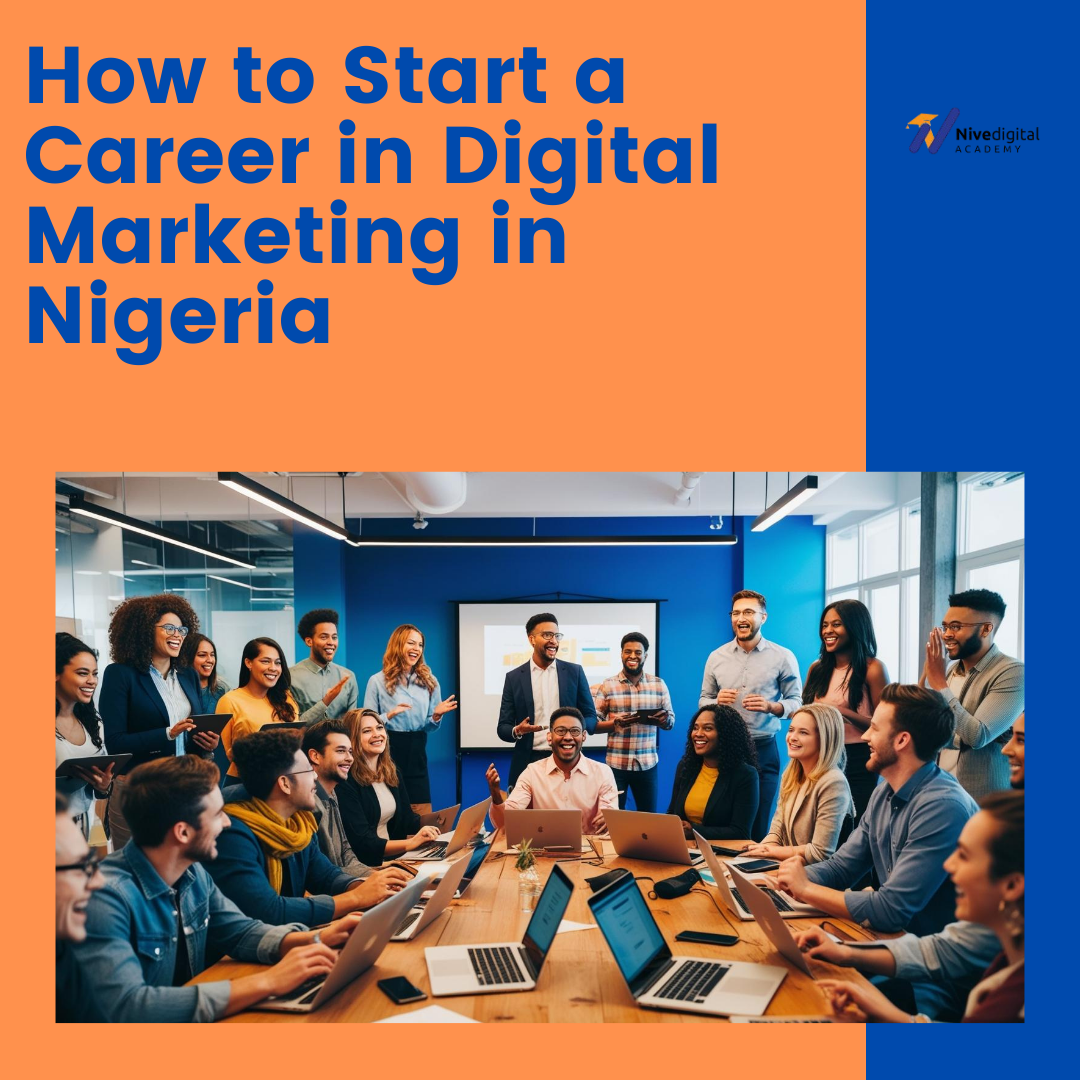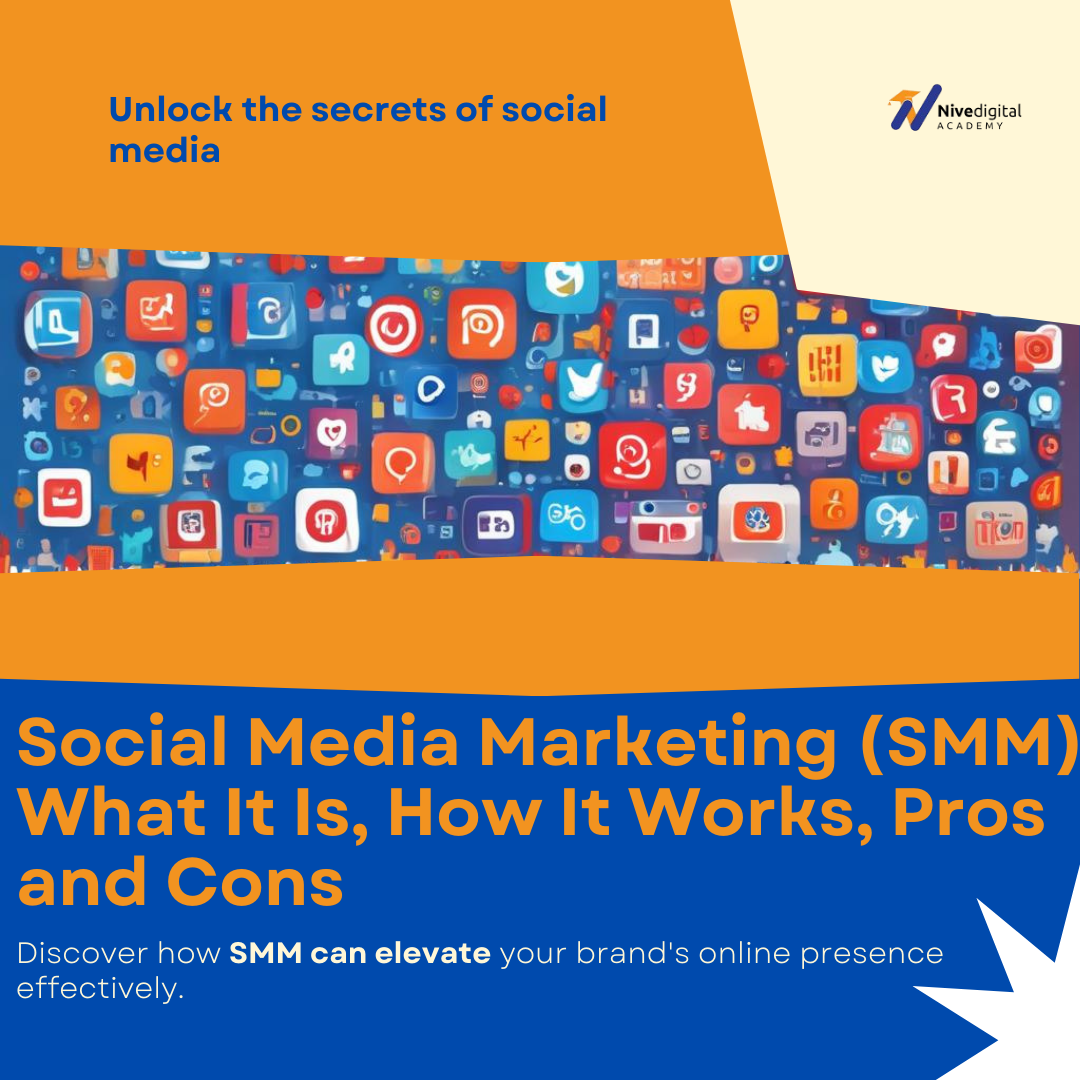How to Start a Career in Digital Marketing in Nigeria
Digital marketing is a high-demand field in Nigeria, offering opportunities for individuals who want to work in online marketing, content creation, and data-driven advertising. With businesses moving online, the need for skilled digital marketers continues to grow. Whether you are a student, a career changer, or someone looking for extra income, this guide will help you start and grow a successful digital marketing career in Nigeria. What Is Digital Marketing? Digital marketing refers to promoting businesses, products, or services using the internet and digital platforms. Unlike traditional marketing, which relies on billboards, TV ads, and newspapers, digital marketing allows businesses to connect with customers through: Digital marketing is essential because it is cost-effective, measurable, and helps businesses reach their target audience faster. Step 1: Learn the Basics of Digital Marketing Before starting a career in digital marketing, you must understand its core components. These include: 1. Search Engine Optimization (SEO) SEO is the process of improving a website so it ranks higher on search engines like Google. This involves: 2. Content Marketing Content marketing focuses on creating valuable content (articles, videos, and infographics) that attracts and educates customers. It includes: 3. Social Media Marketing This involves using social media platforms to engage with an audience. It includes: 4. Email Marketing Email marketing involves sending promotional messages and newsletters to customers. Effective email marketing requires: 5. Pay-Per-Click (PPC) Advertising PPC advertising is a paid method of driving traffic to a website. Businesses pay each time someone clicks on their ad. Popular PPC platforms include: 6. Analytics and Data Tracking To measure the success of digital marketing efforts, businesses use tools like: Start by reading blogs, watching YouTube tutorials, and following experts in the industry. Websites like Google Digital Garage, HubSpot Academy, and Moz offer free learning resources. Step 2: Get Practical Experience Learning theory is important, but practical experience will set you apart. Here’s how you can start practicing digital marketing skills: Hands-on practice will help you understand real-world digital marketing challenges. Step 3: Take Online Courses and Get Certified While you can learn a lot on your own, structured courses help you learn faster. Some top online platforms offering digital marketing courses include: Certifications prove your knowledge and increase your chances of landing a job. Step 4: Start Networking with Industry Professionals Networking is key to finding job opportunities, mentorship, and freelance projects. Here’s how to connect with professionals: Step 5: Apply for Internships or Freelance Jobs Once you have basic knowledge and practical experience, look for digital marketing internships or freelance jobs. Here’s where to find opportunities: Internships and freelancing help you gain hands-on experience and build your portfolio. Step 6: Specialize in a Niche Digital marketing has different areas of specialization. Instead of trying to master everything, focus on one or two areas. Some popular specializations include: Choosing a niche allows you to become an expert in a specific area. Step 7: Build Your Personal Brand A strong online presence can attract employers and clients. To build your personal brand: A well-established online presence makes you more visible in the industry. Step 8: Apply for Digital Marketing Jobs Once you have skills, experience, and a portfolio, start applying for jobs. Use: When applying, customize your CV to highlight your skills, certifications, and portfolio. Conclusion Starting a career in digital marketing in Nigeria requires learning, practice, and networking. Follow these steps to build your skills, gain experience, and secure job opportunities. Whether you work for a company, freelance, or start your own agency, digital marketing offers unlimited growth potential. Frequently Asked Questions (FAQs) 1. Can I start a career in digital marketing without a degree? Yes. Most digital marketing skills can be learned through online courses, tutorials, and practice. Employers value experience and results more than degrees. 2. How much can a digital marketer earn in Nigeria? Entry-level digital marketers earn between ₦80,000 to ₦200,000 per month. Experienced marketers and specialists can earn over ₦500,000 per month. Freelancers can earn even more depending on their clients. 3. What tools do I need to start a digital marketing career? Some essential tools include: 4. How long does it take to become a digital marketing expert? It depends on your dedication. With consistent learning and practice, you can gain basic skills in 3–6 months and become highly skilled in 1–2 years.





